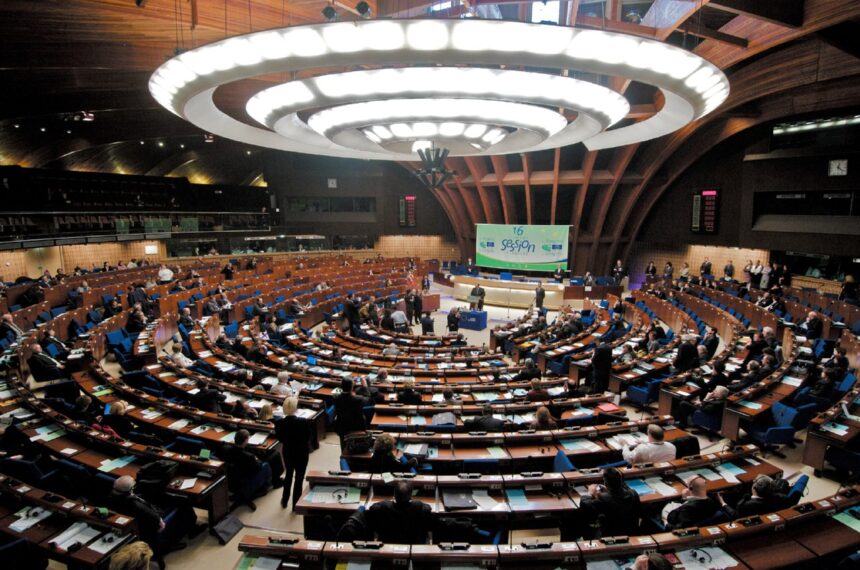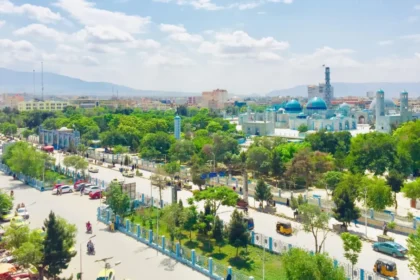RASC News Agency: In a bold show of solidarity with Afghanistani women suffering under Taliban rule, members of the Parliamentary Assembly of the Council of Europe (PACE) released a powerful new declaration on Friday, May 9, expressing support for international efforts to empower women and girls from Afghanistan. The statement emphasizes the urgent need for greater international protection and opportunities for Afghanistani women, particularly those displaced across Central Asia, including Kazakhstan, Kyrgyzstan, and Uzbekistan.
The declaration initially signed in early April by 21 members of parliament from a broad coalition of European nations including Austria, Belgium, Sweden, and Turkey calls for the creation of a “United Nations Regional Centre for the Sustainable Development Goals (SDGs) for Central Asia and Afghanistan” in Almaty, Kazakhstan. The proposed center is intended to serve as a long-term institutional platform for supporting education, economic participation, and social security for Afghanistani women who have been stripped of their rights under the Taliban’s extremist regime. Documented under entry No. 804 in PACE’s official records, this is the second formal action taken by the Council in 2025 concerning the Taliban’s systematic violation of women’s rights. Earlier this year, in February, Greek MEP Maria Syrengela submitted a motion highlighting the Taliban’s ban on secondary and higher education for girls and women a policy widely condemned by the international community as a form of gender apartheid. Syrengela’s motion underscored how this educational exclusion directly undermines Afghanistani women’s economic independence, self-reliance, and long-term security.
Since returning to power in 2021, the Taliban have pursued an aggressive and regressive agenda that seeks to erase women from public life. Women are barred from education beyond sixth grade, banned from most forms of employment, restricted from travel without male guardianship, and routinely subjected to corporal punishment for defying dress codes. These draconian measures have pushed countless women and girls into exile, forced dependency, and psychological trauma. In contrast to the Taliban’s oppressive policies, international bodies have attempted to open new pathways for Afghanistani women through education and empowerment abroad. In 2019, the European Union and the United Nations Development Programme (UNDP) launched a joint initiative to provide higher education opportunities to Afghanistani women in Central Asia. Kazakhstan, Kyrgyzstan, and Uzbekistan have since become key host countries in this effort. According to the UN, over 100 Afghanistani women are expected to graduate with university and professional degrees from these countries by 2027.
Currently, dozens of these women are undergoing intensive English language preparation in Kazakhstan as part of university readiness programs. Leading institutions including the Kazakh National Technical University, Kazakh-British Technical University, and Kazakh Agricultural Research University have opened their doors to support these displaced students. Their academic journeys stand in stark contrast to the suffocating restrictions imposed by the Taliban inside Afghanistan, where even basic literacy for girls is now under threat. Experts believe that the proposed UN Regional SDG Centre in Almaty could significantly amplify these efforts by serving as a hub for both short-term humanitarian assistance and long-term development strategies. The center would coordinate educational scholarships, vocational training, legal aid, and psychosocial support for women fleeing Taliban repression. It is also envisioned as a space for research, policy development, and regional dialogue on gender equality and human rights.
This latest initiative reflects growing alarm in European political circles over the Taliban’s relentless assault on women’s freedoms. It also signals a shift toward more tangible, regionally focused mechanisms of support that bypass the Taliban and directly empower Afghanistani women in exile. As the international community continues to debate its engagement with the Taliban regime, voices from Europe are increasingly insisting that no recognition or cooperation can come at the expense of Afghanistani women’s dignity, rights, and future. The proposed regional center in Almaty is, therefore, not only a policy measure it is a moral stand against tyranny and silence.






